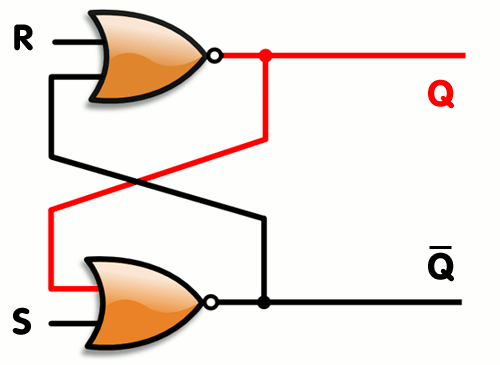I originally planned to talk more about how transistors enable memory. Here's all that made it:
Through looping signals backwards, certain kinds of memory are made possible by signal-triggered switches as well. While this method of information storage has taken a back seat to magnetic and optical media, it is still important to some modern computer operations such as cache.
The notion of "looping signals backwards" is the basis of what electrical engineers call "flip flops" or "latches". Wikipedia has a neat article on these, but it won't mean a lot unless you're familiar with how transistors or logic gates work: http://en.wikipedia.org/wiki/Flip-flop_(electronics)
Here's how I first understood SR latches:
Here signal S (“Set”) will turn the light on, and it will remain
on after S is turned off (or even turned on/off again). Similarly, signal R
(“Reset”) will turn the light off, and it will remain off after R is turned off
(or even turned on/off again). This setup stores only one bit, but more relays can be used to store more information.
Sometimes this is called an "SR NOR latch" because it behaves the same way as two NOR gates wired to loop back on each other. Wikipedia has a nice animation of how this works:
(credit Wiki User Napalm Llama, 2008)
For a long while, I thought this is how flash memory worked... but this was due to misunderstanding synonyms used in various areas of electrical engineering ("NOR" and "gate" in particular). Flash memory is actually enabled through special kinds of field-effect transistors, but the one of the terminals (the gate) is constructed a little differently from a traditional FET; said to be "floating". The details of how this enables the storage, accessing and erasure of memory still confuses me. http://en.wikipedia.org/wiki/Flash_memory
That's all for now. I hope this was interesting.
-Robert


No comments:
Post a Comment